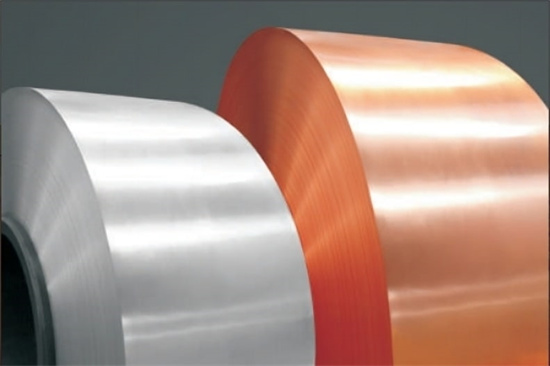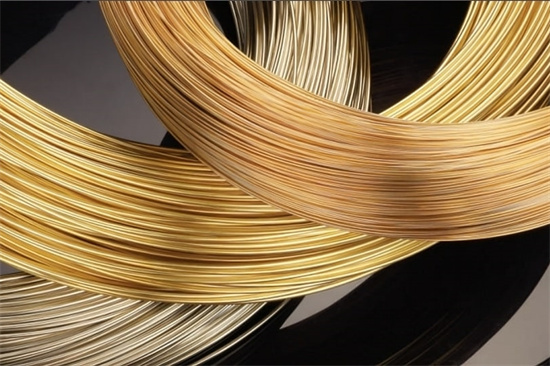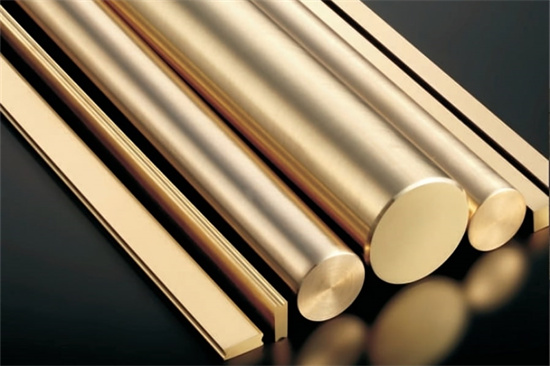


Revolutionerande kopparlegering för precisionsgjutformar: Oslagbara egenskaper
Låg MOQ
Tillhandahålla låg minsta orderkvantitet för att möta olika behov.
OEM & ODM
Tillhandahålla kundanpassade produkter och designtjänster för att tillgodose unika kundbehov.
Tillräckligt lager
Säkerställa snabb orderhantering och tillhandahålla tillförlitlig och effektiv service.
Kundtillfredsställelse
Tillhandahålla högkvalitativa produkter med kundnöjdhet i fokus.
dela denna artikel
Innehållsförteckning
Wen det kommer till precisionsformar, valet av material kan göra eller bryta produktionsprocessen. Om du är i tillverknings- eller verktygsindustrin har du förmodligen stött på kopparlegeringar. Kända för sina hög värmeledningsförmåga, utmärkt bearbetbarhet, och motståndskraft mot slitage, kopparlegeringar är ett populärt val för precisionsformar.
Oavsett om du tillverkar formar till plastinsprutning, pressgjutning, eller formblåsning, kopparlegeringar erbjuder en unik blandning av egenskaper som ger dem en fördel gentemot andra material som stål eller aluminium. Men vad är det egentligen som gör dem så effektiva? Varför vänder sig industrier alltmer till kopparlegeringar för sina formningsprocesser? Låt oss dyka djupt in i världen av kopparlegering för precisionsformar, utforska deras sammansättning, fastigheter, tillämpningaroch mycket mer.
Översikt över kopparlegering för precisionsformar
Kopparlegeringar har vunnit betydande popularitet i precisionsform industrin på grund av deras förmåga att avleda värmen snabbt, minskar cykeltiderna och förbättrar den totala produktionseffektiviteten. Till skillnad från stålformar, som kan fånga värme och leda till skevhet eller nedbrytning av ömtåliga delar, hjälper kopparlegeringar till att underhålla dimensionell noggrannhet och ytkvalitet genom att minimera termisk stress.
Nyckelegenskaper hos kopparlegering för precisionsformar
- Hög värmeledningsförmåga: Kopparlegeringar avleder värme snabbare än stål, vilket minskar cykeltiderna och ökar produktionseffektiviteten.
- Utmärkt slitstyrka: Kopparlegeringar är mycket motståndskraftiga mot slitage, förlänger livslängden på formar och minskar underhållskostnaderna.
- Enastående bearbetningsförmåga: Kopparlegeringar är lättare att bearbeta än andra material, vilket gör komplexa formkonstruktioner mer genomförbara.
- Motståndskraft mot korrosion: Kopparlegeringar, särskilt de med ytterligare element som nickel eller beryllium, är resistenta mot korrosion, vilket gör dem lämpliga för hög luftfuktighet eller kemiskt aggressiva miljöer.
- Seghet och styrka: Trots att de är mjukare än stål, vissa kopparlegeringar, som t.ex beryllium koppar, erbjuder exceptionell styrka och hållbarhet.
Typer, sammansättning och egenskaper hos kopparlegering för precisionsformar
Kopparlegeringar finns i olika former, var och en erbjuder olika mekaniska egenskaper och Termisk prestanda. Beroende på formningsprocess (t.ex. formsprutning, pressgjutning), kan olika legeringar vara mer lämpliga. Låt oss utforska de mest använda kopparlegeringar i precisionsgjutning.
Vanliga typer och sammansättning av kopparlegering för precisionsformar
| Legeringstyp | Primär sammansättning | Viktiga egenskaper | Vanliga tillämpningar |
|---|---|---|---|
| Beryllium koppar (BeCu) | Koppar (96-98%), Beryllium (1,5-2%) | Hög hållfasthet, utmärkt slitstyrka, enastående värmeledningsförmåga, korrosionsbeständighet. | Formsprutning, formblåsning, pressgjutning. |
| Koppar-nickel (CuNi) | Koppar (70-90%), Nickel (10-30%) | Utmärkt korrosionsbeständighet, bra termisk och elektrisk ledningsförmåga, måttlig styrka. | Marina formar, kemiska miljöer, högt slitage. |
| Mässing (Cu-Zn legering) | Koppar (60-70%), Zink (30-40%) | God skärbarhet, måttlig hållfasthet, lägre korrosionsbeständighet jämfört med andra kopparlegeringar. | Formar med låg komplexitet, lågkostnadsapplikationer. |
| Aluminium brons | Koppar (88-92%), aluminium (6-12%) | Bra slitstyrka, hög hållfasthet, måttlig korrosionsbeständighet, utmärkt värmeledningsförmåga. | Kraftiga formar, pressgjutning, marina applikationer. |
| Fosfor brons | Koppar (85-90%), tenn (5-10%), Fosfor (<1%) | Hög utmattningsbeständighet, god hållfasthet, utmärkt slitstyrka, måttlig värmeledningsförmåga. | Högprecisionsformar, elektriska kontakter. |
Beryllium koppar (BeCu)
Beryllium koppar är kanske den mest kända kopparlegeringen som används i precisionsformar. Det erbjuder en anmärkningsvärd kombination av styrka, Hårdhet, och värmeledningsförmåga. Den höga värmeledningsförmågan hos berylliumkoppar möjliggör snabb värmeöverföringvilket gör den till ett perfekt val för formsprutningsformar där snabba nedkylningstider är avgörande.
Koppar-nickellegeringar (CuNi)
Koppar-nickellegeringar värderas för sina utmärkta korrosionsbeständighetsärskilt i marin eller kemiska miljöer. Även om de inte matchar styrkan av beryllium koppar, balansen av Termisk prestanda och korrosionsbeständighet gör dem till ett bra val för specialiserade formningsapplikationer.
Tillämpningar av kopparlegering för precisionsformar
Kopparlegeringar används i ett brett spektrum av precisionsgjutningstillämpningar, tack vare deras termiska egenskaper, slitstyrka, och maskinbearbetbarhet. Olika kopparlegeringar väljs beroende på specifik formningsprocess, om det är formsprutning av plast, pressgjutning, eller formblåsning.
Vanliga tillämpningar av kopparlegering i precisionsformar
| Tillämpning | Kopparlegering används | Varför det används |
|---|---|---|
| Formsprutning av plast | Beryllium koppar | Hög värmeledningsförmåga minskar cykeltiderna, utmärkt slitstyrka säkerställer lång livslängd. |
| Formblåsning | Beryllium koppar, aluminium brons | Snabba kylegenskaper leder till högkvalitativa ytbehandlingar, hög hållfasthet stöder komplexa formkonstruktioner. |
| Pressgjutning | Aluminium Brons, BeCu | Tål höga temperaturer och tryck, utmärkt slitstyrka i högfriktionsmiljöer. |
| Formpressning | Fosforbrons, Koppar-Nickel | Korrosionsbeständighet och styrka gör dessa legeringar idealiska för krävande förhållanden som kemisk exponering. |
| Marina formar | Koppar-nickellegering | Enastående motståndskraft mot saltvattenkorrosion, bra värmeledningsförmåga för gjutning i marina miljöer. |
| Fordon för fordon | BeCu, aluminiumbrons | Hög hållfasthet och slitstyrka, i kombination med snabb värmeavledning, gör dessa legeringar perfekta för bildelar. |
Formsprutning av plast
I formsprutning av plast, är den primära utmaningen att uppnå snabba cykeltider och samtidigt bibehålla dimensionell noggrannhet. Beryllium koppar lyser här på grund av sin exceptionell värmeledningsförmåga, vilket gör att formen svalnar snabbt och jämnt, vilket förhindrar förhalning och distorsion i de färdiga delarna.
Pressgjutning
För pressgjutning applikationer, formar utsätts för höga temperaturer och intensivt slitage. Aluminiumbrons och beryllium koppar är kända för sin förmåga att motstå dessa extrema förhållanden och samtidigt bibehålla strukturell integritet.
Specifikationer, storlekar och standarder för kopparlegering i formar
När du väljer en kopparlegering för precisionsformar är det viktigt att följa branschstandarder och Specifikationer. Dessa standarder säkerställer att materialet uppfyller de nödvändiga mekaniska egenskaper, Termisk prestanda, och dimensionstoleranser krävs för högkvalitativ tillverkning av mögel.
Vanliga specifikationer, storlekar och industristandarder för kopparlegeringar
| Legeringstyp | Standardstorlekar tillgängliga | Branschstandarder för formar |
|---|---|---|
| Beryllium koppar (BeCu) | Stavar: Ø 10 mm till Ø 300 mm, Plattor: 10 mm till 150 mm tjocka | ASTM B196, ASTM B194, DIN 17666, ISO 428 |
| Aluminium brons | Stavar: Ø 20 mm till Ø 200 mm, Plåtar: 2 mm till 50 mm tjocka | ASTM B150, BS EN 12163, ISO 1338 |
| Fosfor brons | Stavar: Ø 8 mm till Ø 100 mm, Plattor: 5 mm till 100 mm tjocka | ASTM B139, BS EN 1652, ISO 437 |
| Koppar-nickellegeringar | Rör: Ø 12 mm till Ø 500 mm, plattor: 5 mm till 100 mm tjocka | ASTM B466, BS EN 12449, ISO 6207 |
| Mässing (Cu-Zn legering) | Stavar: Ø 5 mm till Ø 200 mm, Plattor: 1 mm till 50 mm tjocka | ASTM B36, DIN 17660, BS 2870 |
Dessa standarder säkerställer dimensionell noggrannhet, kemisk sammansättning, och mekanisk prestanda är konsekventa mellan olika leverantörer. Till exempel, ASTM B196 täcker specifikationerna för beryllium kopparstång och tråd, vilket säkerställer att legeringen uppfyller de nödvändiga hårdhets- och hållfasthetskraven för precisionsformar.
Leverantörer och prissättning av kopparlegering för precisionsformar
Priset på kopparlegering för precisionsformar som används i formar kan variera avsevärt beroende på typ av legering, Form (stänger, ark, stavar), och orderkvantitet. Dessutom marknadsfluktuationer i priserna på koppar, beryllium, aluminium, och andra legeringselement kan påverka kostnaderna.
Ledande leverantörer och prisuppskattningar för kopparlegeringar
| Leverantör | Plats | Tillgängliga legeringstyper | Pris per kg (uppskattning) | Minsta antal beställningar |
|---|---|---|---|---|
| Materion Corporation | USA, globalt | Beryllium koppar, fosforbrons | $25 – $50 | 10 kg |
| Aviva Metals | USA | Beryllium koppar, mässing, aluminium brons | $20 – $45 | 20 kg |
| Shanghai Metal Corporation | Kina | Koppar-nickel, mässing | $10 – $25 | 50 kg |
| KME Tyskland GmbH | Tyskland | Fosforbrons, Koppar-Nickel | $15 – $40 | Varierar efter beställning |
| Lebronslegeringar | Frankrike | Beryllium koppar, aluminium brons | $30 – $55 | Anpassade beställningar |
Priser för beryllium koppar kan vara avsevärt högre på grund av Toxicitet och särskilda hanteringskrav av beryllium. I den nedre änden, mässing och koppar-nickellegeringar är mer överkomliga men kan sakna termisk och mekaniska egenskaper nödvändiga för högpresterande formar.
Jämför för- och nackdelar med kopparlegering för precisionsformar
Att välja rätt Kopparlegering för precisionsformar för din precisionsform kräver vägning Fördelar och Begränsningar av varje alternativ. Låt oss bryta ner För- och nackdelar av de mest använda kopparlegeringarna.
Fördelar och begränsningar med kopparlegering för precisionsformar
| Kopparlegering | Fördelar | Begränsningar |
|---|---|---|
| Beryllium koppar (BeCu) | Hög hållfasthet, utmärkt slitstyrka, överlägsen värmeledningsförmåga. | Dyr, kräver speciell hantering på grund av berylliumtoxicitet. |
| Aluminium brons | Bra slitstyrka, hög hållfasthet, utmärkt för applikationer vid hög temperatur. | Lägre värmeledningsförmåga än berylliumkoppar, måttlig kostnad. |
| Fosfor brons | Hög utmattningsbeständighet, goda slitegenskaper, utmärkt bearbetningsförmåga. | Lägre värmeledningsförmåga, måttlig hållfasthet jämfört med andra legeringar. |
| Koppar-nickellegering | Utmärkt korrosionsbeständighet, måttlig styrka, god bearbetbarhet. | Lägre värmeledningsförmåga, högre kostnad jämfört med mässing. |
| Mässing (Cu-Zn legering) | Prisvärd, bra bearbetbarhet, måttligt stark. | Lägre korrosionsbeständighet, inte lämplig för högtemperaturapplikationer. |
Beryllium koppar vs. aluminiumbrons
Vid jämförelse av beryllium koppar till aluminium brons, den viktigaste skillnaden ligger i värmeledningsförmåga. Beryllium koppar är det bästa valet om snabb värmeavledning är avgörande för formningsprocessen. Dock, aluminium brons erbjuder bättre slitstyrka i högtemperaturmiljöer, vilket gör den idealisk för pressgjutning.
Fosforbrons mot koppar-nickel
För applikationer som kräver hög utmattningshållfasthet och korrosionsbeständighet, fosforbrons och koppar-nickellegeringar är utmärkta alternativ. Dock, fosforbrons tenderar att utmärka sig maskinbearbetbarhet, medan koppar-nickel lyser in marina miljöer på grund av sin överlägsenhet korrosionsbeständighet.
Vanliga frågor om kopparlegering för precisionsformar
| Fråga | Svar |
|---|---|
| Varför används kopparlegeringar i precisionsformar? | Kopparlegering för precisionsformar erbjuder hög värmeledningsförmåga, slitstyrka och bearbetbarhet, vilket gör dem idealiska för gjutningsapplikationer. |
| Vilken är den bästa kopparlegeringen för formsprutning? | Beryllium koppar anses allmänt vara den bästa för formsprutning på grund av dess överlägsna termiska egenskaper. |
| Hur mycket kostar kopparlegering för formar? | Priserna varierar från $10 till $55 per kg, beroende på legeringstyp och leverantör. |
| Kan kopparlegering för precisionsformar användas vid högtemperaturgjutning? | Ja, kopparlegering för precisionsformar gillar aluminium brons och beryllium koppar tål höga temperaturer, vilket gör dem lämpliga för pressgjutning. |
| Är kopparlegering för precisionsformar korrosionsbeständiga? | Många kopparlegeringar för precisionsformar, som t.ex koppar-nickel, erbjuder utmärkt korrosionsbeständighet, särskilt i marina eller kemiska miljöer. |
Slutsats
När det gäller precisionsformar, kopparlegeringar är ett enastående val för ett brett utbud av tillämpningar. Från formsprutning av plast till pressgjutning, kopparlegeringar ger den perfekta balansen mellan värmeledningsförmåga, styrka, och slitstyrka. Oavsett om du är ute efter minska cykeltiderna, öka mögellivslängden, eller helt enkelt förbättra kvaliteten på dina slutprodukter, kopparlegeringar är en mångsidig och högpresterande lösning.
Genom att förstå typer, fastigheter, och tillämpningar av kopparlegeringar kan du fatta välgrundade beslut om det bästa materialet för din precisionsformningsprocesser. Oavsett om det är överlägsen termisk prestanda av beryllium koppar eller den korrosionsbeständighet av koppar-nickellegeringar, det finns en kopparlegering där ute för att möta dina specifika behov.
Om du vill veta mer om våra produkter, vänligen kontakta oss
Få det senaste priset
Om Met3DP
Produktkategori
HOT SALE
KONTAKTA OSS
Har du några frågor? Skicka oss meddelande nu! Vi kommer att betjäna din begäran med ett helt team efter att ha fått ditt meddelande.

Metallpulver för 3D-printing och additiv tillverkning
FÖRETAG
PRODUKT
cONTACT INFO
- Qingdao City, Shandong, Kina
- [email protected]
- [email protected]
- +86 19116340731








